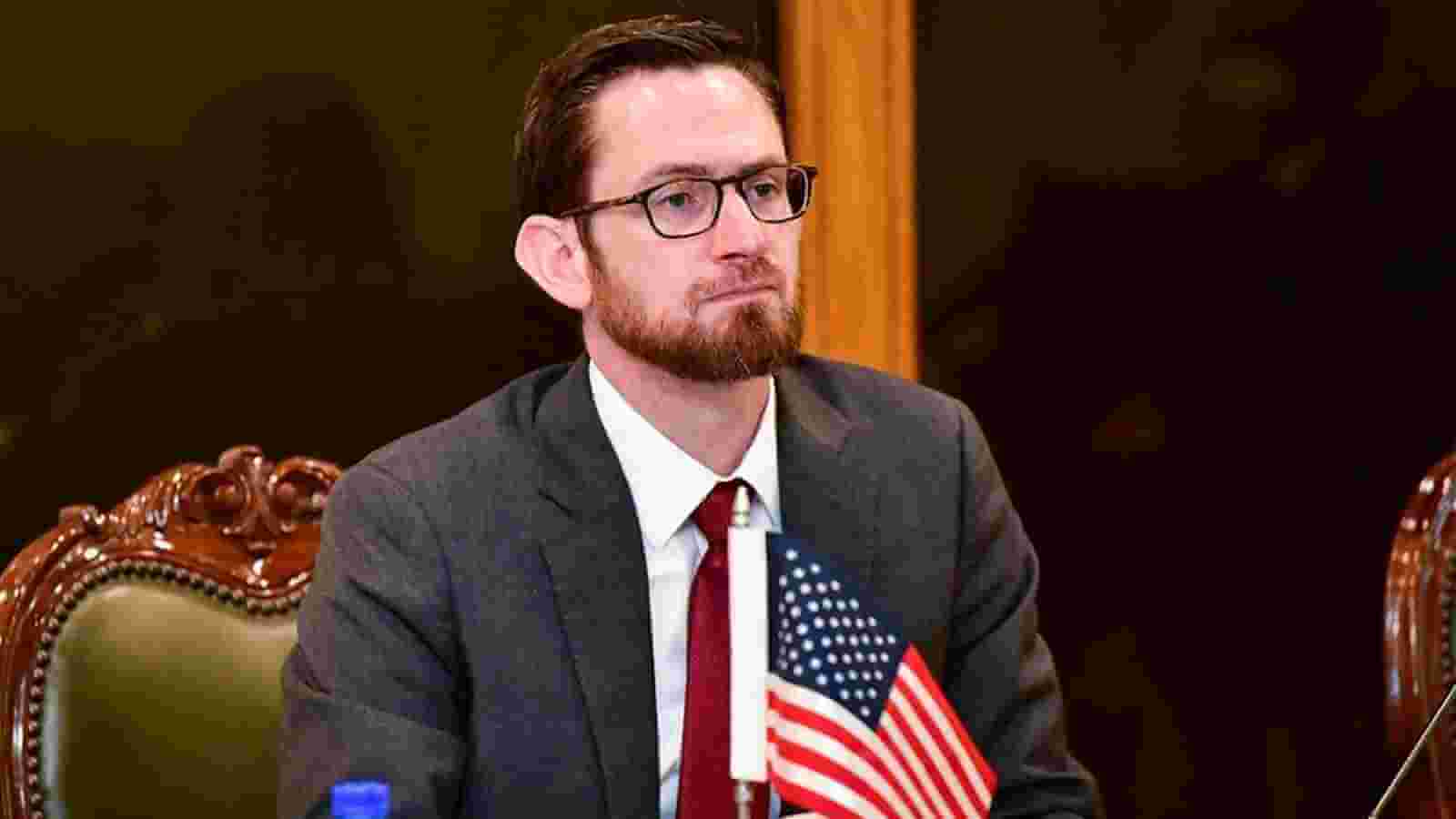United States’ (US) Special Envoy to Afghanistan, Thomas West, conveyed the international community’s “unified opposition” to “ongoing and expanding restrictions on women and girls’ rights” in Afghanistan during his meeting with Taliban’s Foreign Minister, Amir Khan Mutaqi.
2/4 Girls must be back in school, women free to move & work w/o restrictions for progress to normalized relations.
— U.S. Special Representative Thomas West (@US4AfghanPeace) May 21, 2022
Taking to Twitter, West declared, “Girls must be back in school, women free to move and work without restrictions for progress to normalised relations.”
In fact, US Special Envoy for Afghan women, girls, and human rights Rita Amiri was also present at the meeting. Discussing concerns about the dire situation of women’s rights, she reiterated that the Taliban must restore the rights of women and girls and ensure the “protection of vulnerable populations” before any discussion on diplomatic ties with the Taliban’s government in Afghanistan.
In response, Muttaqi informed Amiri that Afghan women are now working in several sectors such as education, health, and immigration. Moreover, speaking about the decision to mandate hijabs in public places, he claimed that the Afghan women did not oppose the decree.
Raised concerns regarding dissolution of AIHRC & constitution & reconciliation commissions & stressed that this contradicts demands of Afghans for greater accountability & needs to be remedied. 2/2
— U.S. Special Envoy Rina Amiri (@SE_AfghanWGH) May 21, 2022
Amiri also condemned the group’s decision to dissolve the Human Rights Commission (HRC) and the High Council for National Reconciliation (HCNR) earlier this month. She said that the decision went against the Afghan people’s demands “for greater accountability.”
On May 16, the Taliban government’s deputy spokesperson Innamullah Samangani said that the two departments were deemed “unnecessary” and were subsequently excluded from the budget. The HCNR was responsible for overseeing the implementation of Afghanistan’s constitution and was a key feature of the United States-brokered peace accord between the previous Ashraf Ghani government and the Taliban. Apart from Afghanistan’s HRC and HCNR, the Taliban last December dissolved the country’s Independent Election Commission (IEC), which was established back in 2006 to supervise polls.
Meanwhile, despite making contrary claims, the Taliban’s commitment to women’s rights and freedoms also remains questionable. For instance, earlier this month, it ordered all women to cover their faces from head to toe in public spaces. It has also banned girls from attending high school and women from boarding flights unless they are accompanied by a male relative, among various other restrictions.
In addition, last Thursday, the Talibans’ Vice and Virtue Ministry issued a decree mandating female news anchors to cover their faces, saying that that woman could also wear a medical mask.
Apart from raising concern about women’s rights, West also discussed the need to stabilise the Afghan economy. While no further information was provided by the US representative, the Taliban’s Ministry of Foreign Affairs released a statement saying that West “elaborated on developments in the US on Afghan financial sector, particularly the banking and monetary system.”
3/4 Also discussed economic stabilization to support Afghan people, concerns about terrorist attacks on civilians, and recent dissolution of important institutions.
— U.S. Special Representative Thomas West (@US4AfghanPeace) May 21, 2022
Muttaqi said that this was a “favourable development.” He further informed West that despite the restrictions and changes in government, the Afghan banking system remains operational. He also highlighted that Afghanistan’s currency has “retained its value” even through the political turmoil. Furthermore, he asserted that the Taliban government has paid the salaries of 500,000 former and new government employees.
In contrast to Muttaqi’s claims, however, most economic indicators suggest that Afgahnistan’s economy is reeling from the impact of Western sanctions, particularly due to the Taliban’s inability to directly access up to $10 billion in central bank foreign reserves. At the same time, foreign aid has been severely curtailed. Moreover, Taliban itself has reported a $500 million budget deficit.
IEA Foreign Minister Mawlawi Amir Khan Muttaqi in a telephone call with the US Special Representative for Afghanistan Thomas West & the US Special Envoy for Afghan Women Rina Amiri discussed issues of mutual interest. pic.twitter.com/khHj727dbq
— Abdul Qahar Balkhi (@QaharBalkhi) May 22, 2022
That being said, in February, US President Joe Biden signed an executive order to allow the release of $7 billion of Afghanistan’s reserves that will be distributed by aid groups. Meanwhile, the remaining amount will be utilised to help victims of terrorism.
Similarly, in December, the United States Office of Foreign Assets Control issued licenses permitting American and international agencies to conduct “official business” with the Taliban, paving the way for humanitarian aid. Nevertheless, between the Taliban’s takeover in August and February this year, Afghanistan has received merely $1.6 billion in aid.
The Afghan economy has been further impacted by the Taliban’s decision to ban the cultivation of the opium poppy, which employs over 500,000 people and accounts for over 10% of the country’s economy.
The statement by the Afghan foreign ministry following Muttaqi’s meeting with US officials also claims that the Taliban has that “security has been ensured” and that ISIS has been “defeated,” despite significant evidence of ISIS-K’s resurgence since the Taliban’s takeover last august.

